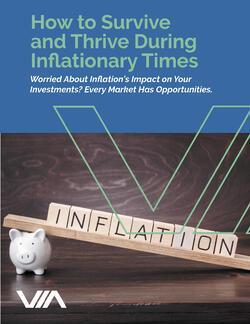

Why High-Net-Worth Families Need a Comprehensive Financial Plan
As your wealth grows over time, the importance of having a comprehensive financial plan in place that addresses all aspects of your financial life should be a top priority for you and your family. As a high-net-worth individual/family, a comprehensive plan should address not only your financial goals, but it should also include strategies to protect both your money and your family, in the event you are no longer able to do so.
In this article, we review what a comprehensive financial plan for high-net-worth investors is, the advantages of having one, and the potential pitfalls of lacking one.
Please explore the following with us:
- Can a lack of financial planning impact even the affluent?
- What is comprehensive financial planning for the wealthy?
- How can high net worth families benefit from it?
- Why is a long-term approach generally more effective?
It Goes Beyond Your Investments
When they hear the term “financial planning,” most people are either overwhelmed by everything that they think it involves or they have no idea what it is. Financial planning is a long-term process that empowers you and your family to make decisions about your money.
It centers around a road map that you design with the assistance of a financial planning professional, many who have achieved the CERTIFIED FINANCIAL PLANNER(R) designation. . The plan plan is based on your values and goals rather than knee-jerk reactions to events in the market, with the intention that you follow the plan through various life events.
Quality financial planning is tailored to your unique circumstances with consideration of your life stages, taxes, estate planning, philanthropy, liquidity (the amount of your cash on hand), insurance coverage, and more.
It can be invaluable for high-net-worth families for multiple reasons:
- Helps you assess how much income you will need once you retire
- Helps you assess changes to the economy (for instance, inflation) and how that might impact your planning and investments moving forward
- You can plan ahead for financial emergencies now-so that they don’t become diasters down the road
- Helps you plan for and potentially reduce your tax liabilities, both short and long-term
- Helps you make better financial decisions for you and your family
Conversely, without a financial plan, you may make decisions that conflict with your monetary goals and objectives. In other words, a lack ofplanning may cause some to make poor financial decisions because they haven’t thought out all of the various ramifications that could occur.
Especially during inflationary periods, even the affluent can find their money stretching thinner, if caution is abandoned.
The Advantages of Awareness
Once you have a comprehensive financial plan in place, the likely impact of your decisions becomes clearer. As a result, you have a much better idea of how your financial decisions will affect your overall financial health, as well. This, in turn, makes it easier to identify where adjustments to your savings, spending, or investing strategies should be made moving forward.
The overarching goal of a comprehensive financial plan is ensuring that everything falls in line with your desired financial goals —while avoiding missteps that could pull you further from it. Most people find this ongoing process far preferable to picking up the pieces after their family’s nest egg has shrunken or (worse yet) collapsed.
Tax planning is typically a large component to a comprehensive plan for high–net-worth investors.
Effective tax planning involves minimizing your current taxes as well as taking advantage of long-term benefits that may apply within the law. Together, the effort focused on both areas has the ability to lower your overall taxes, making it easier to save money (in a tax-efficient manner).
Could a Goals-Based Approach to Savings Make You a Better Investor? Find Out More Here
Why a Comprehensive Approach Counts
It is not a coincidence that you have seen repeated mentions of “comprehensive” financial planning above. This is because an all-encompassing approach is almost always more effective than a one-sided effort: Just as a physician may examine your overall bodily health, a wealth manager seeks information on your overall financial health.
A financial plan that factors in your income, monthly household expenses, investment portfolio(s), tax-deferred savings (e.g., IRA, 401(k)) and future retirement goals can more efficiently optimize your savings and earnings opportunities. Add in your savings, charitable giving (if applicable), and the financial legacy you want to leave behind—and we have a more complete 360-degree view of your monetary well-being.
The more complete the image, the better we can diagnose problems with your financial health. .

Charitable giving strategies, in particular, are best implemented through a comprehensive financial plan that draws on multiple aspects of your wealth management, including estate planning, and philanthropy.
We hope this post has given you a reasonable idea of what a comprehensive financial plan is—and why a well-constructed one can be extremely advantageous for affluent families. Contact us at your convenience to learn more.


